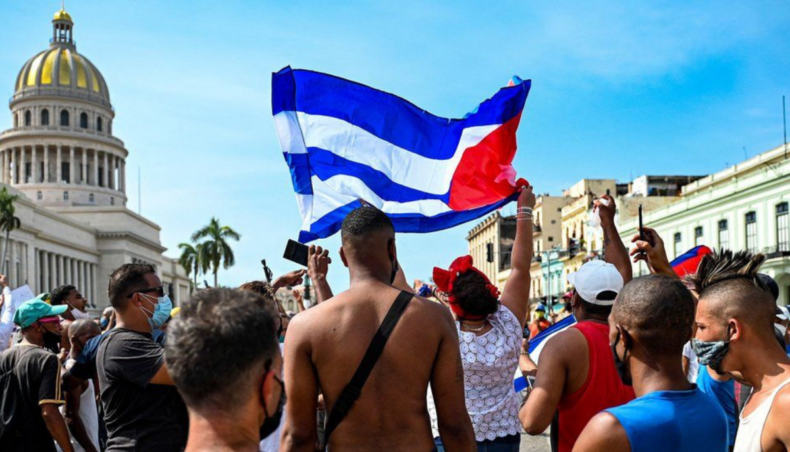According to the Cuba attorney general’s office, nearly 300 of those sanctioned received sentences ranging from five to 25 years in prison.
381 people have been sanctioned by the Cuban government for taking part in last year’s rare anti-government protests on the island.
In July 2021, tens of thousands of Cubans marched through the streets of Havana and other cities in protest of rising food prices, medical shortages, and poor socioeconomic conditions exacerbated by the COVID-19 pandemic.
The attorney general’s office said in a statement given to state media that of the 381 persons sanctioned on Monday, 297 were convicted to between five and 25 years in prison for crimes of treason, sabotage, robbery with force, and public disruption.
The prosecutor’s office stated that 84 persons, including 15 minors, were not sentenced to prison.
It did warn, however, that anyone who violated their sanctions or committed new criminal offenses could face harsher penalties. The legal age of criminal responsibility in Cuba is 16 years old.
“The Attorney General’s Office continues to alert the people on the judicial response to the problems of July 11, 2021, which threatened our socialist state’s constitutional order and stability,” the statement said.
Cuba announced in late January that 790 people had been charged in connection with the protests.
Last year, some protestors took direct aim at President Miguel Diaz-Canel’s government, screaming “down with the dictatorship” and “we want liberty.”
US Intervention in Cuba?
The Cuban government has accused the United States of funding and orchestrating the protests in the past.
However, rights groups have condemned the state’s response on the protests, as well as the ensuing arrests and prosecutions of protesters.
Human Rights Watch charged Havana in October with a pattern of “arbitrary detention, ill-treatment of detainees, and abuse-riddled criminal trials” in response to “overwhelmingly peaceful” rallies.
“When thousands of Cubans came to the streets in July, the Cuban government responded with a violent repressive tactic aimed to sow fear and squash dissent,” said Juan Pappier, the group’s senior Americas researcher at the time.













